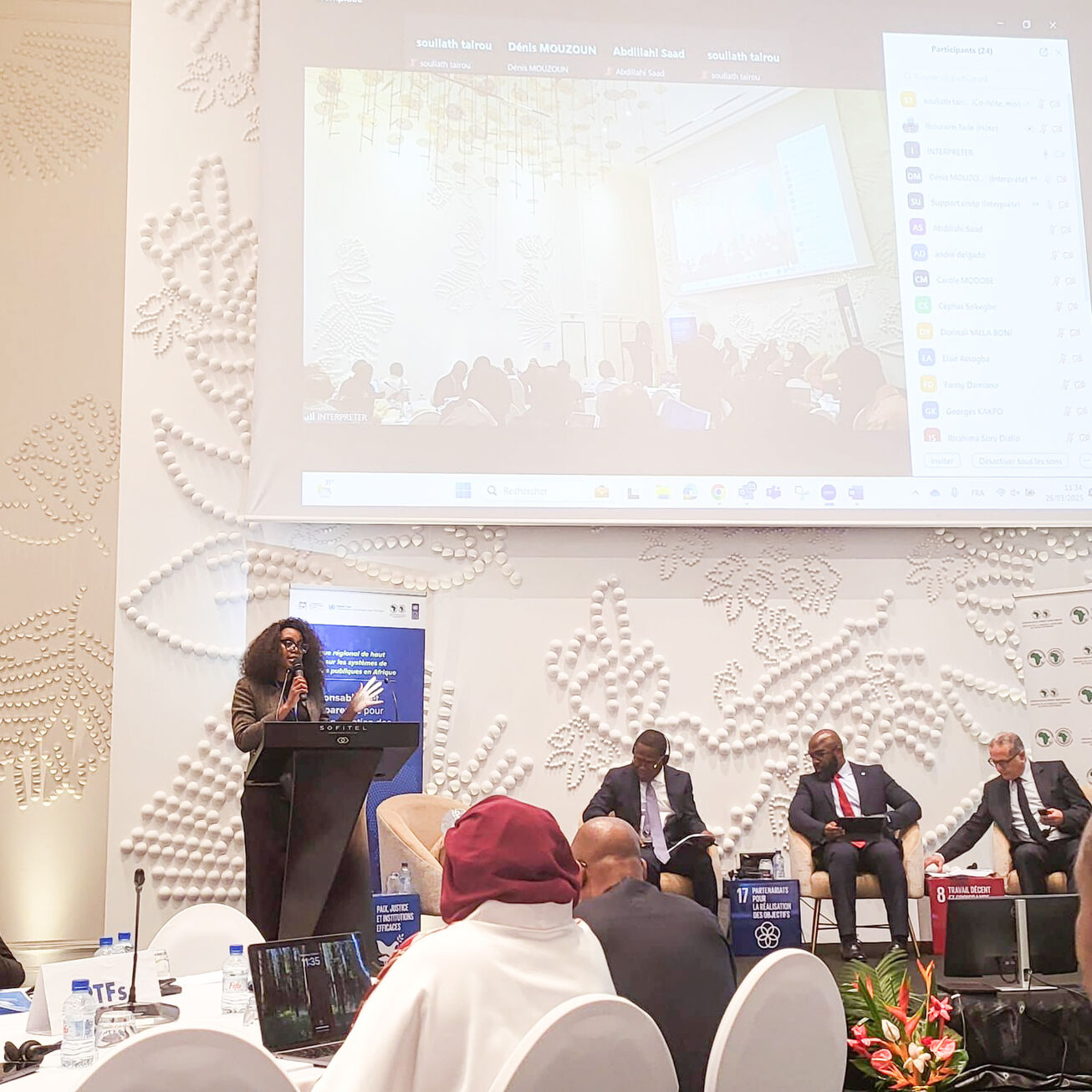Date

With shrinking official development assistance (ODA) and mounting fiscal pressures, African nations must urgently rethink their revenue strategies to strengthen domestic tax systems, reduce illicit financial flows (IFFs), and reduce dependency on external aid to secure long term economic stability.
The High-Level Regional Dialogue on Public Finance Systems in Africa organised by United Nations Development Programme (UNDP) Regional Service Centre for Africa, in collaboration with UNDP Benin, Government of Benin, United Nations Economic Commission for Africa (UNECA) and The African Development Bank (AfDB) addressed this pressing issue in a critical session on "Innovative Tax Policy and Tax Administration in the ODA Declining Era" during a meeting held in Cotonou, Benin on 25 and 26 March 2025.
Moderated by Executive Director of Tax Justice Network Africa (TJNA) Chenai Mukumba, the session examined how African countries can strengthen their domestic resource mobilization (DRM) as reliance on official development assistance (ODA) continues to decline.
The discussion focused on modernising tax policies and administration to create more efficient and equitable tax systems while transitioning from donor-driven financing models to sustainable domestic revenue sources.
The decline of ODA is not a new phenomenon. However, recent shifts in funding priorities by key donors such as USAID, the UK, and the Netherlands have amplified the urgency for African nations to enhance their DRM efforts. The importance of strengthening tax systems is essential not only for reducing external dependency but also for fostering fiscal autonomy, economic self-sufficiency, and a more predictable revenue base.
Participants emphasized that innovative tax policies and effective tax administration are central to achieving fiscal resilience and advancing the Sustainable Development Goals (SDGs), many of which remain at risk of non-attainment.
The conversation emphasised the need to broaden the tax base, improve tax compliance, and aligne tax policies with national development priorities. Honourable Mohamed Boussaid, Former Minister of Finance of Morocco, stressed that African governments must increasingly rely on their own resources to safeguard economic sovereignty.
“Governments must strengthen the social contract by addressing corruption and ensuring that citizens see tangible benefits from their tax contributions. Expanding the tax base, particularly by integrating the informal sector, and maintaining stable and coherent tax policies are key to achieving this,” Boussaid remarked.
Romeo Nkoulou Ella, Senior Specialist at the African Tax Administration Forum (ATAF), reflected on lessons from past crises, such as the 2008 financial downturn, which demonstrated that adversity often drives policy innovation.
He noted that policy coordination is critical as fragmented tax regimes and ineffective incentives weaken revenue collection efforts. Governments should eliminate regressive tax structures and unlock revenue potential in underutilized sectors such as the digital economy. He further cited evidence from African countries where the removal of ineffective tax incentives resulted in significant revenue gains without deterring investment.
Addressing the persistent challenge of IFFs, Dr. Nicolas Yenoussi, Director General of Taxes, highlighted that Africa loses more than $50 billion annually to IFFs. He emphasized that tackling this issue must be prioritized both nationally and continentally. He explained that Benin has taken proactive steps by developing a national strategy on IFFs, defining politically exposed persons, and actively engaging in global transparency initiatives such as the OECD and the Global Forum on Exchange of Information. Strengthening tax administration and enhancing cross-border cooperation were identified as critical measures to curb tax abuse and corruption.
In her concluding remarks, Ms Mukumba noted that beyond domestic efforts, African countries need to engage in global tax governance reforms. She noted that participants acknowledged that Africa’s interests are often marginalized in international tax discussions, making it imperative to advocate for a UN Tax Convention to address issues such as the fair allocation of taxing rights. By actively participating in global tax rule-making processes, African nations can push for reforms that address their unique economic challenges and contribute to a more equitable international tax system.
She also stressed that while the session was on innovative taxes, many of the solutions discussed during the session were not new. Rather, what was clear was that existing solutions require urgent implementation. African countries can accelerate progress by learning from each other’s experiences and leveraging the local expertise of institutions like ATAF. However, domestic efforts alone will not be sufficient. Meaningful change depends on African nations working collectively to reshape the global tax system in ways that promote fiscal sovereignty and sustainable development.
For more information on the High-Level Regional Dialogue on Public Finance Systems, please contact Everlyn Muendo at emuendo[@]taxjusticeafrica.net.